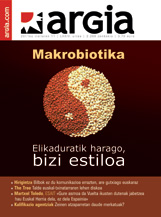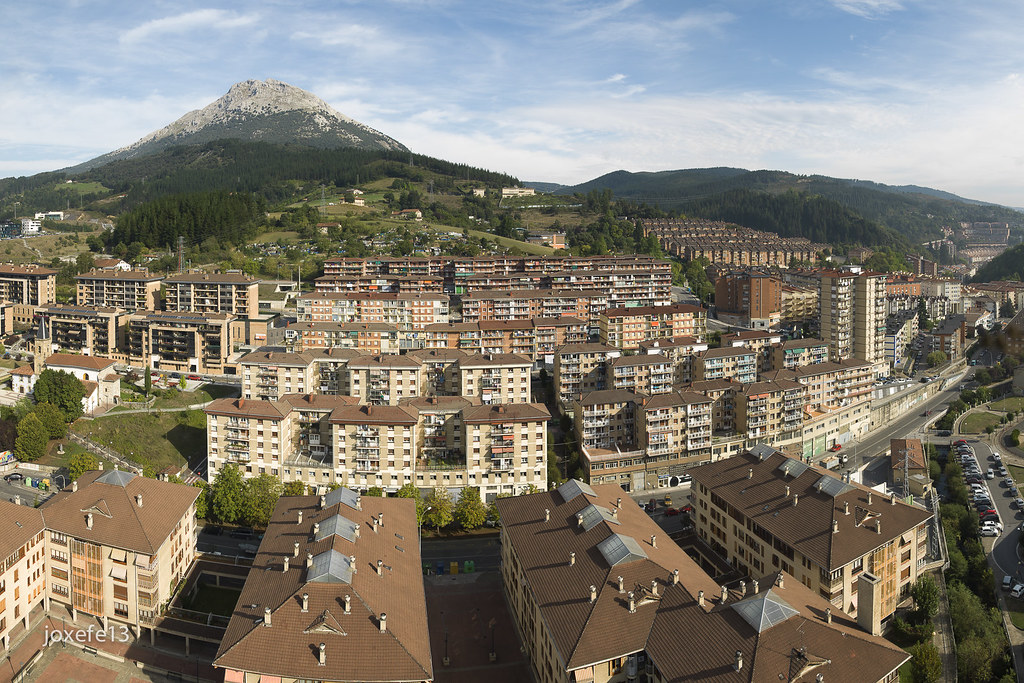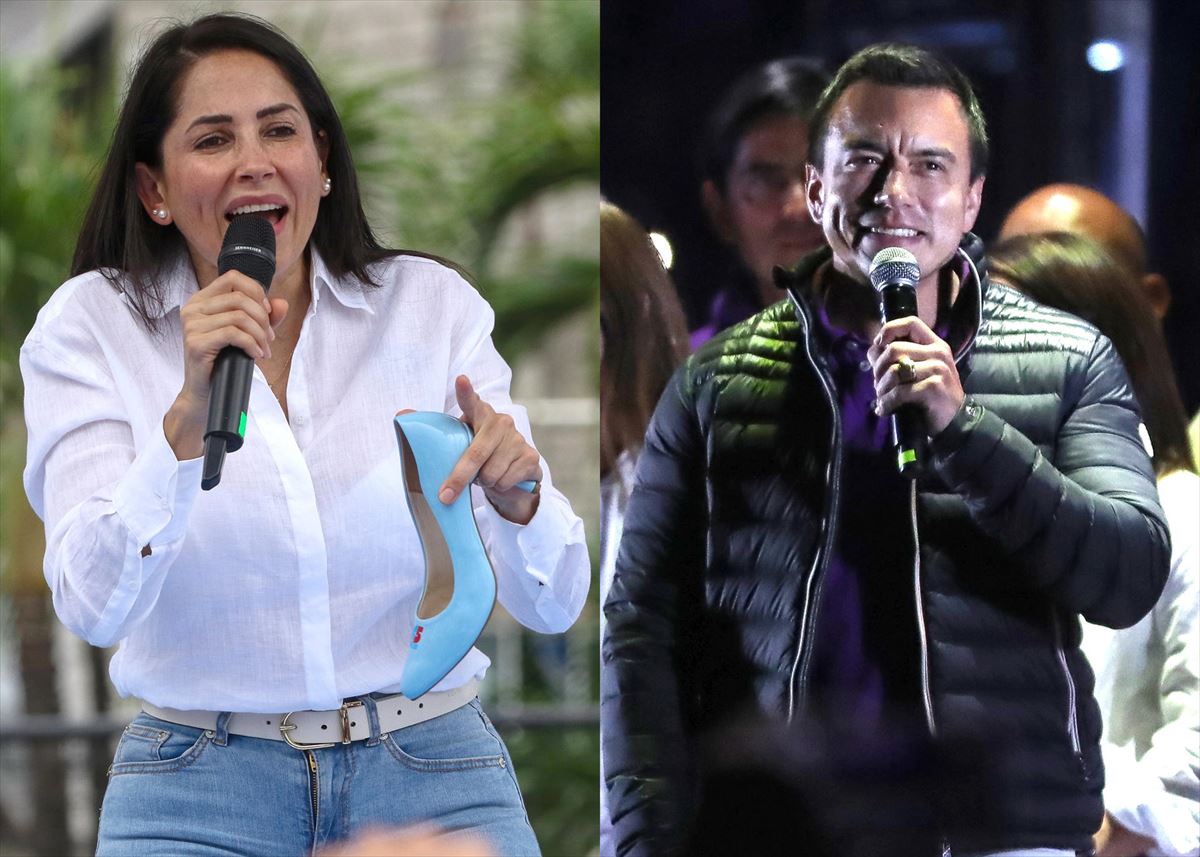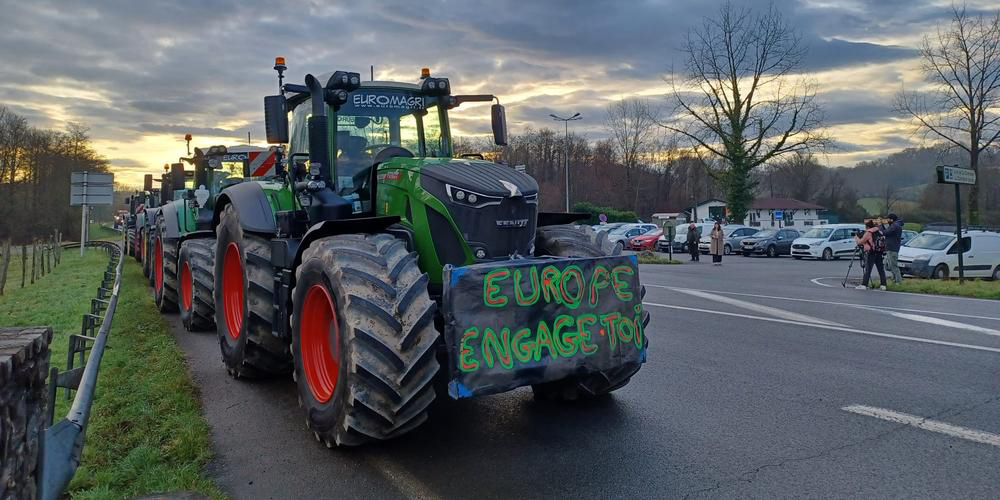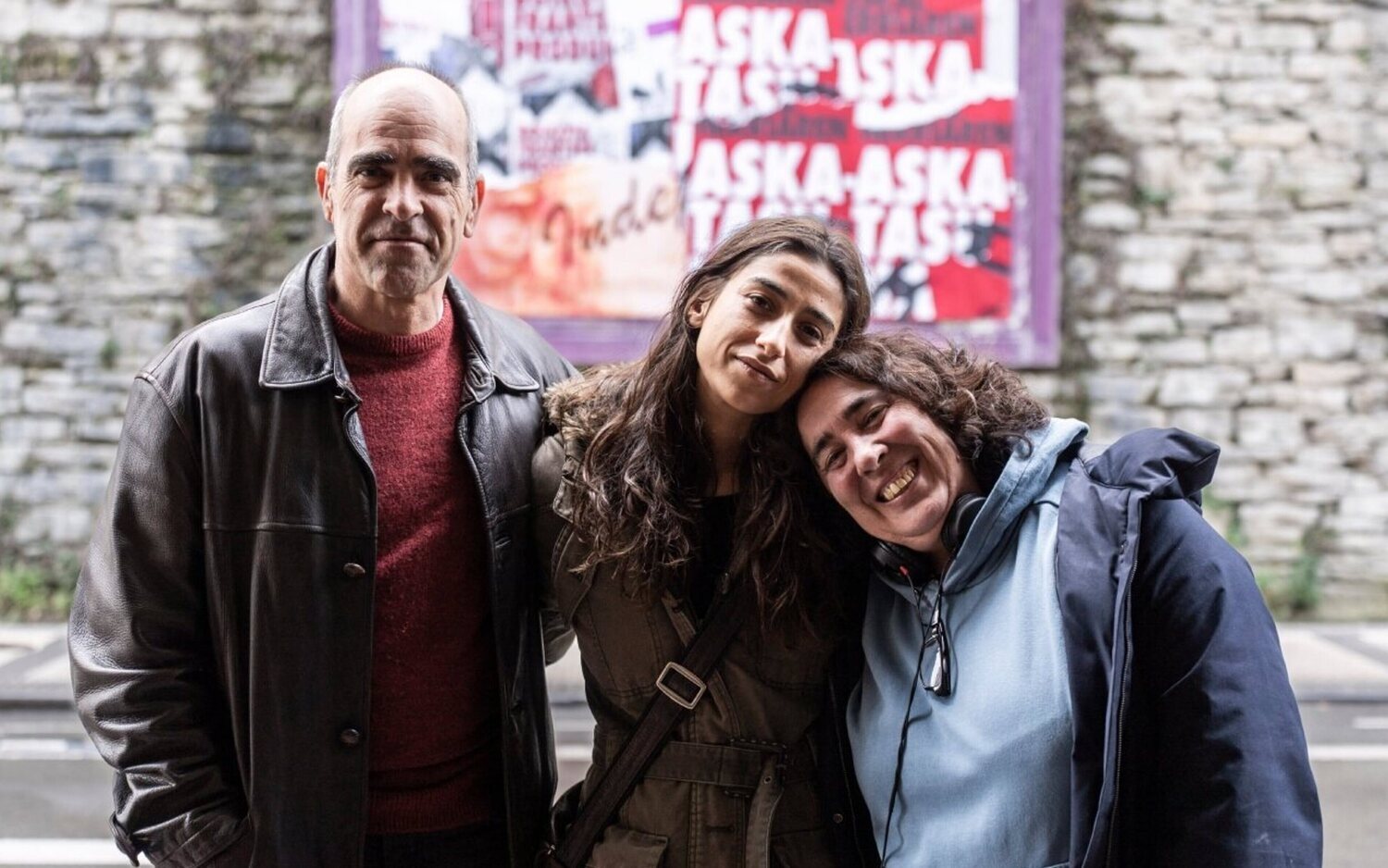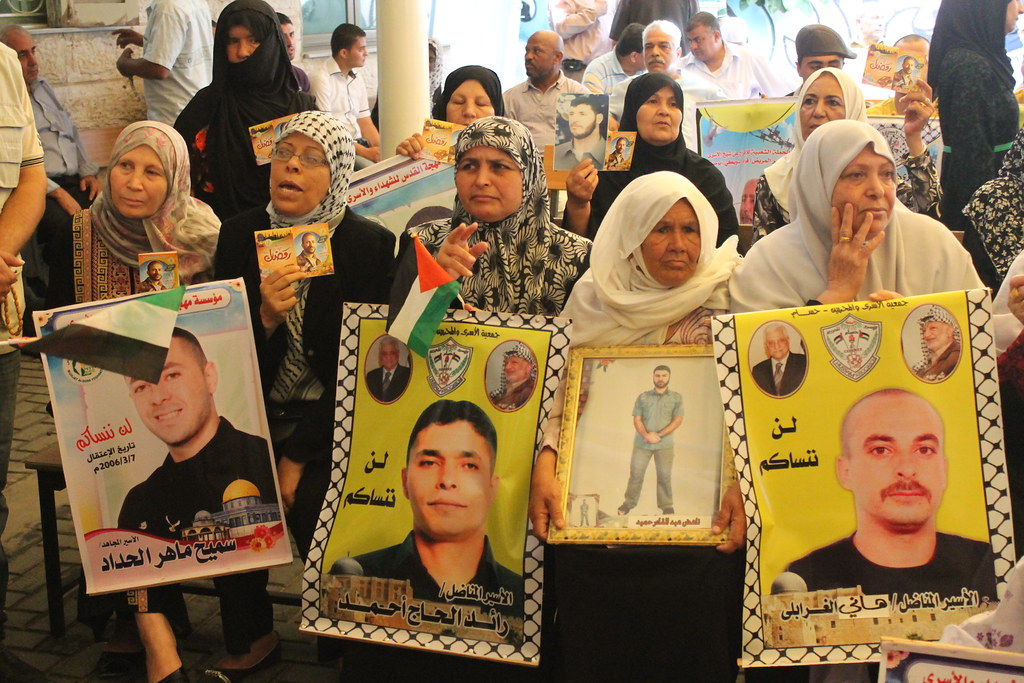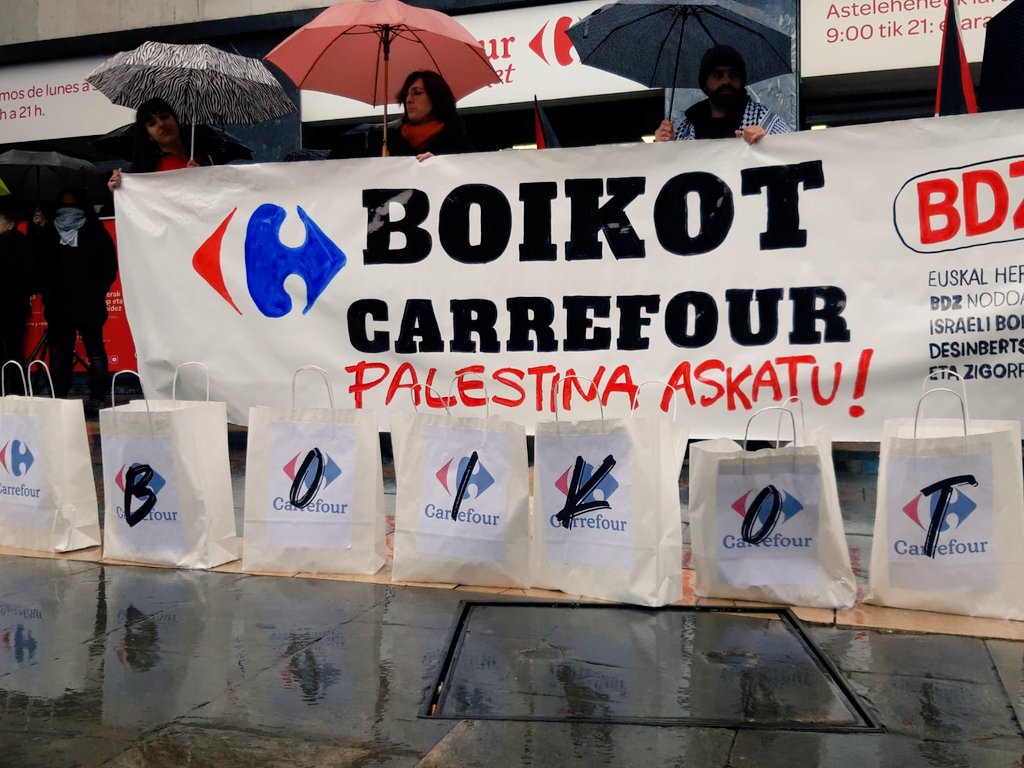Aid to increase the feeling of Spain is easily granted
- The Vuelta a España is about to cross Euskal Herria, but the protests have come before the cyclists, as expected. Among the eleven agents who have denounced the passage of the Vuelta a España through this territory stands out ESAIT, which has assumed in some way the direction. From that and other issues we talked about in the next interview with Martxel Toledo from Oiartzun.
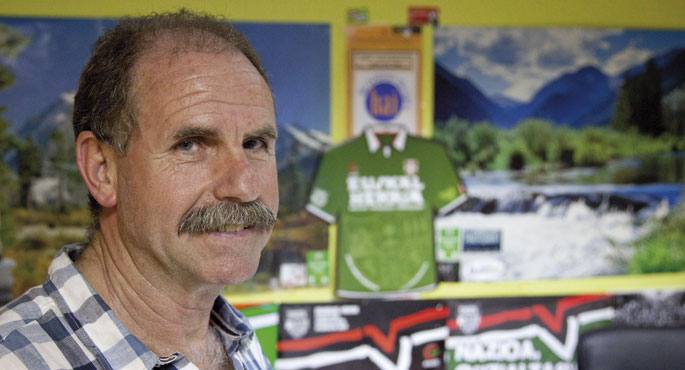
On July 5 you offered the first press conference to denounce the passage of the Vuelta a España by Euskal Herria...
The Vuelta last spent seventeen years ago in the Basque Country, but on that occasion the only thing it did was to cross some roads in Navarre. It is 33 years, however, that has not gone through the CAV. It goes without saying why at that time they stopped bringing the Vuelta here. Last year, since the Basque Government began to manage the PSE and the pp, both formations proposed bringing here, on the pretext of normalisation, the word they use, various sporting events. The Spanish basketball team was in Vitoria-Gasteiz, the crown finals of the king and queen in Euskal Herria have been made, and to round it all have brought the Vuelta.
They described it as provocation.
Yes, because we know what these parties are doing when they use the word “standardisation”. We believe that passing the Tour of Euskal Herria at this time, and passing through the peoples we expressly call “komantxe” –Zornotza, Elorrio, Bergara...–, is a provocation.
In June, the organization organizing the Vuelta, Unipublic, was asked to meet, but he did not answer.
We wanted to tell them that there are many concerns here among the fans, and one of them is that they want to bring the Vuelta to look like normalization, but we believe that what they want to do is reinforce the feeling of Spanish in Euskal Herria.
Would you have to ask Unipublic to leave the Basque Country?
We are not against cycling, we are not against sport; for us it is important that Euskal Herria assume this type of special events, but in another context and with another approach. We know that the Vuelta a España has come out of the Spanish state, that the Tour has also come out to Donostia, and we are not opposed to such initiatives. What we say is that we are owed a minimum of respect as a nation. They dare to talk about normality, but it is a sad reality that the athletes here have to play with the selections of Spain and France. The most appropriate normalization would be for these athletes to have the opportunity to interact with their selections, and if we took steps towards it, we would have no problem in which initiatives such as the Vuelta are welcomed here.
The first protest actions have already been carried out for the passage of the Vuelta por Euskal Herria, and the panic has spread for what can happen in the days of the stages.
At the time, we said that we would give a coherent response, and that we would not put the Vuelta upside down either, which was not ESAIT’s intention.
A lot of money will be spent to fund the two stages of the Vuelta that pass through Euskal Herria. They have commented that it would be better to use these coins to strengthen Basque cycling...
Careers have long been disappearing, not only at professional levels, but also because they lack financial support. Some of the comments, the most well-known: Ascent to Urkiola, ascent to Arrate... Euskal Bizikleta herself has been forced to join the Return to the Basque Country, as the Basque Government has reduced aid. And at an amateur level, that's almost the bread of every day. It is more consistent for us to devote the money to strengthening the races here than to paying for the stages of the Vuelta.
At a time of crisis in which citizens have to overwhelm us, Vitoria-Gasteiz will put around 110,000 euros on the table to organize a final stage. On the contrary, the Basque football team had the opportunity to go abroad, because it left because it asked for a subsidy from the Basque Government and was not granted. Subsidies to increase the feelings of Spain are easy to give and for other things they do not exist or are being reduced.
The Vuelta is about to pass through here. What do you really think will be the response of Basque fans? Can it happen that most people encourage them to go out into the street with total normality and that those who participate in the protests are people unrelated to cycling?
I don't know. This people is plural and there are opinions of all kinds. Because there are people who say that we should be glad that the Vuelta went through here, that that is good for us. There will be those who will see cycling honestly; what happens is that those who see this issue from the popular conscience, those who see it as an imposition, have the right to protest. Our aim will be to ensure that there are no incidents among amateurs. That's not going to happen, I don't think. Our intention is that after passing the Vuelta here, both the organizers and all those who see the Vuelta realize that this is Euskal Herria, which is not another part of Spain, which is another nation, which has its rights.
Let's talk about other things that's not cycling. The men’s senior football team, which ultimately generates more passions, has returned without being a couple of years playing. Can you say that the conflict has been resolved?
No, you can't be sure. The players commented that if they played this year it was not because the problem was solved, but because they saw that the fans needed to play the game. We, at least, are clear why there was a two-year interruption.
Players received criticism from many points of view. Some clubs, especially Athletic, also spoke strongly against them.
Knowing Fernando García Macua and the people around him, these pressures are quite logical. Other clubs, and even smaller clubs, channeled that pressure, saying that the money coming out of the pick party was for the quarry, and not for the quarry to weaken. We have made it clear that this is not logical at all. People who come to the team party, who put money out of their pocket, put it to help that pick and take steps in their favor, not to take it to the quarry. The quarry has a need, and in that sense Athletic has taken its step, organizing a friendly match, but we have to allocate the money that comes out of the selection party, in our opinion, and I suppose that also in the opinion of the players is so, to the officiality of the federations. The others are excuses.
Another criticism made of the players, some, is that it is not coherent that they take such a strong position in favour of the Basque team and then work with the Spanish team.
Raise your hand if there's no contradiction. It is very easy to make this criticism. It happens that a football player is obliged to go if he is called by a federation. There are sanctions, they can lose the license. In this sense, the search for these kinds of contradictions is easy. But the answer is also simple: that the selections of Euskal Herria can play officially, and so we would see the option that the player chooses, whether from Spain or Euskal Herria. Now there is only one, the player is forced, and it has neither feet nor heads to make such criticisms. The aim of these criticisms is always to put the good names of the players before the hobby. I do not mean that some players who play with Spain do not feel Spanish, but surely others, if you give them the opportunity, would choose ours.









